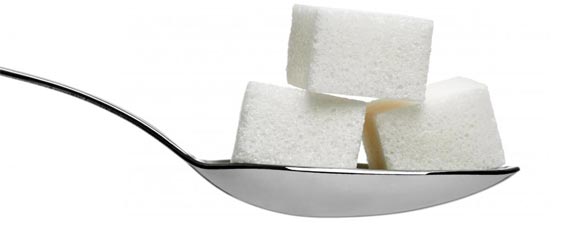Our culture is obsessed with sugar. As parents, we keep it from our children for as long as possible for fear that our child will never eat a green bean again. Yet once that first birthday rolls around, that first taste of chocolate cake triggers some major pleasure centres in the brain, and there is no going back!
Likewise, in the wine world the taste of sweet is comforting, but too much can be sickly. Winemakers are always looking for a balance of sweetness and all of the other components in wine to create something harmonious and delicious.
Sweetness in wine ideally comes from residual sugar (RS in winespeak); naturally occurring grape sugars that remain in the wine after fermentation. If all of the sugars are converted to alcohol; the resulting wine is dry. If there are any sugars remaining after fermentation, this sweetness may be detectable on the palate to a greater or lesser degree. Other components in wine such as acid, tannin and alcohol can affect how we perceive sweetness on the palate and can make determining exact levels of sweetness difficult. For example: high alcohol in wine increases the perception of sweetness, as does low acidity in wine, whereas high tannin in wine makes a wine taste drier. If you are curious or concerned about the amount of sugar in your wine, you can seek out the wine’s technical sheet or hunt down the winemaker to be sure!
Bad News for Sweet Wines?
Sweetness in wine is sometimes viewed negatively by those who work in the biz. This is mainly because new wine drinker typically gravitate towards wines with some level of sweetness and it can be tough to kick the habit.
So many wine drinkers enjoy some RS in their wines because it adds richness and body. This sweetness balances the acidic and bitter elements in wine, which, at times, can overwhelm some palates. With time and experience, wine drinkers will often begin to appreciate the other elements in wine such as acid and tannins while having lesser tolerance for high amounts of RS. An experienced taster is tasting for balance, and a balanced wine can be bone dry, semi sweet or very sweet – quality simply depends on the synergy of all the wine’s parts.
Finding Balance
German Riesling is a great example of that winemaking balancing act. The grapes grow in a cool climate so their acid levels are high even when picked at their ripest. In order to make a wine that does not taste like sour lemons, a technique is used to stop fermentation before all of the sugars are fermented to dryness. The result is a lowish alcohol wine whose high acid levels are counterbalanced by naturally high sugar levels. Anyone who cooks and bakes can understand the flavour dynamics here. Most wine tasting “pros” really appreciate this style of wine as the sweetening sugars are those naturally occurring grape sugars. Think pure maple syrup vs high fructose corn syrup.
During the winemaking process, there are times when sugar is added to the wine for various reasons. This is called chaptilization and can useful in climates that struggle to fully ripen grapes to sufficient sugar levels in order to achieve the desired alcohol. Chaptilization is not permitted in most old world wine regions because it is considered to be a bit like cheating; but hey, Mother Nature does not always provide the sun and heat to sufficiently ripen grapes, so in those regions that do allow it, this can be very useful for creating a balanced wine.
Finally, there is a whole other category of truly sweet wines that are prized amongst collectors and connoisseurs. These are are all naturally sweet thanks to particular viticultural and winemaking practices. In this case, the consumer is fully aware that they are buying a super sweet wine and will likely only have one glass with dessert or a cheese course.
No matter how you feel about sugar in wine, there’s a lot to be said on both sides of this debate! If you’d like to learn more, check out Wine Folly’s great infographics on sugar in wine to find out what you’ve really been drinking.
-Alanna

